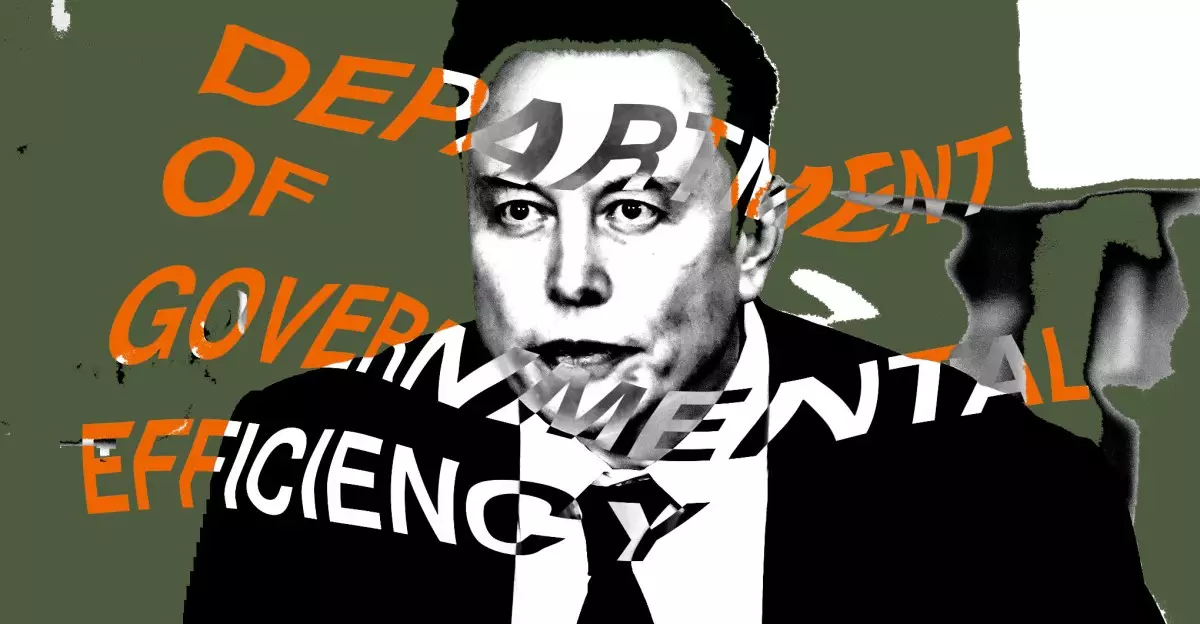In an unexpected move this past Saturday, federal employees received a contentious email from the Office of Personnel Management (OPM), urging them to submit bullet points detailing their recent accomplishments by Monday night. This call to action was partly ignited by a tweet from Elon Musk, wherein he hinted at a government inspection of employee productivity. Such a directive has raised eyebrows and ignited debate over the appropriateness and legality of the expectations set upon federal workers.
Musk’s suggestion via tweet that failure to comply with the agency’s request might be interpreted as a resignation has drawn a swift backlash from legal experts. Prominent law professor Sam Bagenstos from the University of Michigan articulated that Musk’s statements lack any legal grounding within the federal civil service system. The legal ramifications of such coercive language could lead to significant implications for the employees involved, as experts have suggested that the directive could potentially violate federal employment laws, fostering a climate of fear and uncertainty among workers.
Political Reactions
The political fallout has not been negligible. House Minority Leader Hakeem Jeffries expressed his concerns over the emotional and legal trauma Musk’s directive could impose on hardworking federal employees and their families. His statements resonate with the sentiment that Musk’s supercilious attitude and lack of governance experience could be damaging to the workforce that underpins crucial government functions. Jeffries’s criticism underscores not only legal concerns but also highlights the broader implications of such corporate-style management in the public sector.
Musk’s Management Style: A Cause for Alarm?
Musk’s management tactics, as witnessed during his tenure at Twitter, foster an atmosphere that prioritizes zeal over accountability. The insistence on constant productivity monitoring and the fear of repercussions from failing to report reinforce a troubling narrative comparing federal operations to that of a high-pressure tech environment. While companies can operate under such regimes, the application of this mindset to government agencies, which serve the public interest, raises critical questions regarding his understanding of public service culture.
The overarching question stemming from Musk’s email directive is whether this approach serves to enhance or undermine federal productivity. Critics argue that the commandeering of federal employment practices could result in detrimental impacts on morale, employee well-being, and ultimately efficacy in service delivery. By introducing corporate-style metrics and stressors into a constitutionally structured work environment, the risks extend beyond individual employees to the integrity of government functions themselves.
Elon Musk’s foray into federal oversight through a questionable email directive serves as a cautionary tale about the intersection of corporate culture and public service. As the implications of this incident unfold, there lies an urgent need for stakeholders to reevaluate the parameters in which productivity is assessed in government roles. A balance must be struck that recognizes the unique nature of public service while ensuring that employees are both accountable and supported in their positions. Whether Musk’s approach will lead to meaningful reforms or further complications remains to be seen, but one thing is certain: the current landscape demands a more thoughtful consideration of how we define productivity in public service.


Leave a Reply
You must be logged in to post a comment.